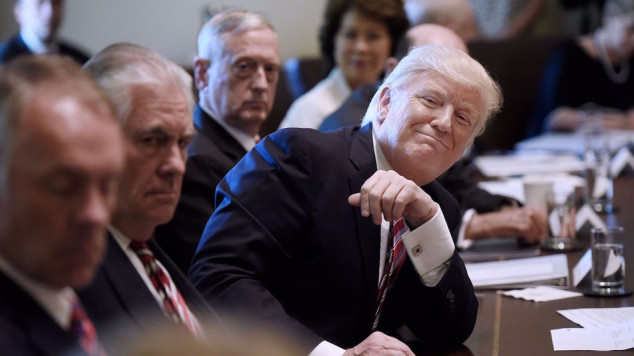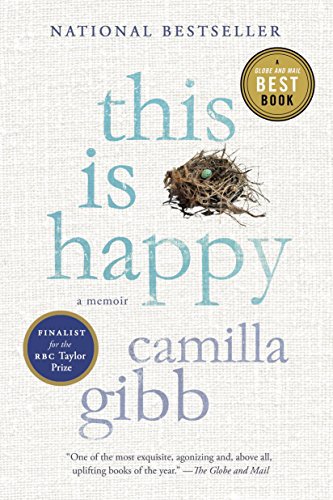
I’ve decided that it’s the transitive property of equality that keeps bringing me back on Sundays to interpret Shakespeare in light of the Trump presidency. Or maybe vice versa. I think the transitive property (if A=B and B=C, then A=C) applies here for the following reason: Shakespeare wrote tragedies; the Trump presidency is a tragedy; therefore a big chunk of what Shakespeare wrote relates to the Trump presidency.
I wasn’t alone in noticing this phenomena this week as there were several articles about the new play that envisions Trump as Julius Caesar. I noted the comparison also in the Shakespeare Sunday post “Pride Before the Fall.” However, this week Trump’s bizarre Cabinet meeting brought comparisons to King Lear. One by one, as Trump beamed, each Cabinet member fell over themselves to tell him what it honor and a blessing it was to serve him (note in the picture that, when not speaking, the Cabinet members look awfully Pope-faced).

Just as Lear invited his three daughters to express their love to him as he decides just how to partition up his kingdom, clearly someone less elegantly put these poor fellows up to this silly show.
Lear at least does it with class as he demands:
Which of you shall we say doth love us most?
That we our largest bounty may extend
Where nature doth with merit challenge.
And then the groveling begins. First Goneril proclaims:
Sir, I love you more than words can wield the matter;
Dearer than eye-sight, space, and liberty;
Beyond what can be valued, rich or rare;
No less than life, with grace, health, beauty, honour;
As much as child e’er loved, or father found;
A love that makes breath poor, and speech unable;
Beyond all manner of so much I love you.
Just as at the Cabinet meeting, it became important to out-toady the previous speaker and likewise Regan feels a need to out do her sister:
Sir, I am made
Of the self-same metal that my sister is,
And prize me at her worth. In my true heart
I find she names my very deed of love;
Only she comes too short: that I profess
Myself an enemy to all other joys,
Which the most precious square of sense possesses;
And find I am alone felicitate
In your dear highness’ love.
It is Cordelia alone who dares to be honest, to speak truth to power. When asked by Lear what she can say that will make him feel even better about himself than the proclamations that have come before, she says, simply, “Nothing.” An astounded Lear, urges her on, in essence, begging her to come up with something praiseworthy, but Cordelia honestly replies:
Unhappy that I am, I cannot heave
My heart into my mouth: I love your majesty
According to my bond; nor more nor less.
For her crime, Lear not only withdraws her part of the kingdom, but advises her that from this point forward she will be a “stranger to my heart and me.”
What a moment it would have been if just one of those “leaders” had been brave enough to say, “Hey, Mr. President, do we have time to talk about some issues here. You know, like soldiers dying in Afghanistan, congressmen being shot up on a baseball field, the entire country waiting to find out about health care changes?”
As Anna North, opinion writer for the New York Times pointed out in her article “President Trump’s King Lear Moment” (May 17, 2017) well before the above-mentioned Cabinet meeting:
He seems to lack a Cordelia who will speak to him honestly. Instead, Mr. Trump has been Regan and Goneriled all the way to the presidency, flattered and coddled by his advisers, the Republican establishment and his family to the point where flattery and coddling are useless and no amount of careful management can keep him from revealing state secrets and then bragging about it on Twitter.
That’s it for this Sunday! Have a lovely Father’s Day wherever you are. While you are relaxing in the recliner take a look back at the piece I posted earlier this week called “My Museum.” You might like it.
Advertisements Share this:
- More





